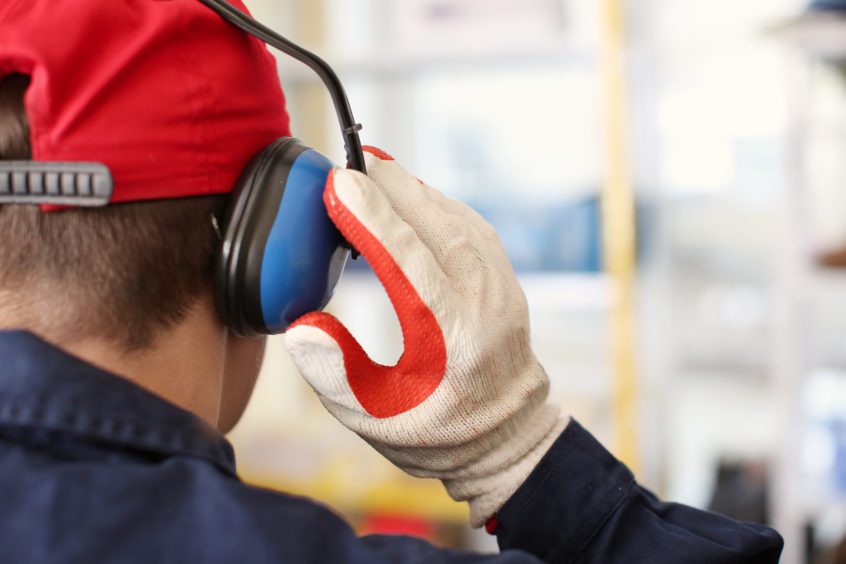Return to Normal Means Return to Noise
There just might be one thing you haven’t missed that much since the pandemic began—noise. Before the nationwide shutdown in March 2020, America was one noisy place, emersed in the constant hum of traffic and machinery 24/7.
But when the pandemic hit and everyone was sent home to quarantine, it was surprising how quiet our world became. Very few cars zoomed up and down the roadways. Airplanes sat quietly parked at airports. In-person concerts and events were canceled. And with people staying home, there were no office conversations around the water cooler or in the break room.
But as life has slowly returned to normal, the level of noise we’re exposed to also has come roaring back, and that’s not necessarily a good thing. Why’s that?
Well, approximately 95 percent of hearing loss in the adult population is sensorineural in nature. In this type of hearing loss, the problem is due to damage to or degeneration of the inner ear (sensory) or auditory nerve (neural). The most common causes of sensorineural hearing loss are noise exposure, age, and hereditary predisposition.
We can’t do anything about aging or our ancestry, but we can control the level of noise we’re exposed to by being careful when we’re around noise-producing machinery or in crowds. Mind you, we’re not talking about the birds singing or a casual conversation. Those sounds aren’t usually harmful. And usually, if the noise is loud but your exposure is very brief, there’s no need to worry.
What’s Considered Loud?
When you’re around loud noise, say 85 dB or above, like at a loud rock concert, and you’re there for a couple of hours, it could affect your hearing. Even exposure to everyday items, like a gas lawn mower, a blender or a blow dryer, can reach a noise threshold that could potentially affect your hearing.
So what’s the best thing to do if you’re concerned about hearing loss and you just want your world in general to quiet down?
Ways to Prevent Hearing Loss
Changing some common habits, like keeping car windows rolled up to block traffic noise or avoiding situations where you know the sound level may be unsafe, are simple common-sense steps you can take to prevent hearing loss.
But you also can reduce your risk for hearing loss by following these tips from the American Speech-Language-Hearing Association:
- Place earplugs into the ear canal so that they totally block the canal. Earplugs come in different shapes and sizes, and can also be custom made by taking an impression of the ear. Earplugs can reduce noise by 15 to 30 decibels (dB) depending on how they are made and fit.
- Use earmuffs that fit completely over both ears. They must fit tightly so that sound is blocked from entering the ears. Like earplugs, earmuffs can reduce noise 15 to 30 dB depending on how they are made and fit.
- Use earplugs and earmuffs together to achieve even greater sound reduction. Use of earplugs and earmuffs is recommended when noise exposure is particularly high.
- Consider custom earplugs and musicians’ plugs if you are frequently exposed to loud noises. If you are an avid hunter or a musician, be sure to talk with your audiologist about these hearing protection devices.
- Do not listen to loud sounds for too long. If you don’t have hearing protection, move away from the loud sound and give your ears a break.
- Lower the loudness of the sound if possible. Keep personal listening devices, such as MP3 players or iPods, set to no more than half volume. Don’t be afraid to ask others to turn down the sounds from speakers. Speak to the movie theater projectionist if the movie soundtrack is too loud at your local theatre.
- Be a good consumer. Look for noise ratings on appliances, sporting equipment, power tools, and hair dryers. Purchase quieter products. This is especially important when purchasing toys for children.
Associated Audiologists offers a wide variety of custom hearing protection to help reduce the damage caused by loud sounds. Some of these products include custom hunter’s protection, musician’s hearing protection, motorsports protection and swim protection.
Custom devices require an in-person appointment for ear impressions and should never be purchased online.
Schedule an appointment with a doctoral-level audiologist to learn more about how to protect your hearing.



